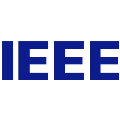TSE aims to extract the clean speech of the target speaker in an audio mixture, thus eliminating irrelevant background noise and speech. While prior work has explored various auxiliary cues including pre-recorded speech, visual information (e.g., lip motions and gestures), and spatial information, the acquisition and selection of such strong cues are infeasible in many practical scenarios. Unlike all existing work, in this paper, we condition the TSE algorithm on semantic cues extracted from limited and unaligned text content, such as condensed points from a presentation slide. This method is particularly useful in scenarios like meetings, poster sessions, or lecture presentations, where acquiring other cues in real-time is challenging. To this end, we design two different networks. Specifically, our proposed TPE fuses audio features with content-based semantic cues to facilitate time-frequency mask generation to filter out extraneous noise, while another proposal, namely TSR, employs the contrastive learning technique to associate blindly separated speech signals with semantic cues. The experimental results show the efficacy in accurately identifying the target speaker by utilizing semantic cues derived from limited and unaligned text, resulting in SI-SDRi of 12.16 dB, SDRi of 12.66 dB, PESQi of 0.830 and STOIi of 0.150, respectively. Dataset and source code will be publicly available. Project demo page: https://slideTSE.github.io/.
翻译:暂无翻译



